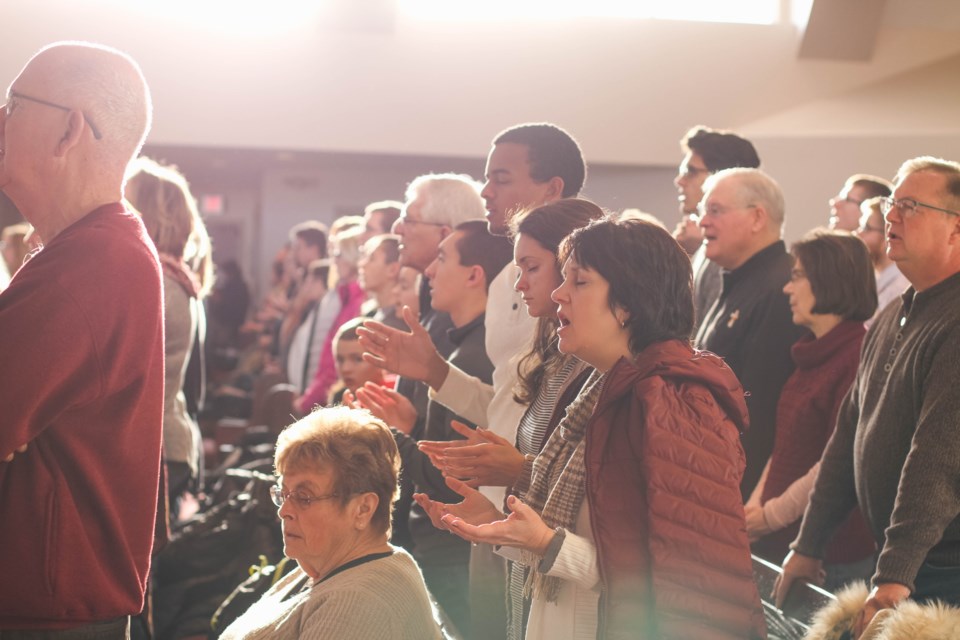 Over the years, churches have skated by with stock welcome statements such as “All are welcome.” Such statements were seen as enough to fend off criticism that they actively discriminate against different groups of people. In recent years, churches are discovering such statements ring hollow and are no longer convincing. People want to know where the rubber meets the road. We are finding the need to communicate how Jesus’ call to love our neighbour informs our ministry and actions in the world.
Over the years, churches have skated by with stock welcome statements such as “All are welcome.” Such statements were seen as enough to fend off criticism that they actively discriminate against different groups of people. In recent years, churches are discovering such statements ring hollow and are no longer convincing. People want to know where the rubber meets the road. We are finding the need to communicate how Jesus’ call to love our neighbour informs our ministry and actions in the world.
Below I explore briefly how as a congregation at Lutheran Church of the Cross we are wrestling with these questions. How can we become more welcoming and make a bigger impact in our neighbourhood, rooted in our Christian theology? In this blog post I touch briefly on three themes.
Transparency. Any time we receive privileges there ought to be accountability attached. I know I do better work when held accountable and am transparent about how I allocate time and resources. The same is true for how as a congregation we open our doors, share space, and contribute to the neighbourhood and wider community. People want to know the ways in which we are serving the community. They shouldn’t have to guess about what a church is up to. The church web-site is a good place to start because it offers a public platform where as a congregation we tell the story of who we are and what we are doing. A web-site is also a place to be transparent about other organizations we support, speakers we host, core values, and who gets to serve in leadership positions. The more transparent we are the more honest we are with ourselves and others.
Overt inclusion.A central part of ministry and outreach at Lutheran Church of the Cross is overtly welcoming groups of people who historically have been excluded from church. This includes members of the queer community, people of colour, including refugees, immigrants, and indigenous peoples, as well as women holding leadership positions. In the past Lutheran churches tended to form enclaves among predominantly white Lutherans from Northern Europe looking for a new home in Canada. That model worked for a time, but no longer reflects our neighbourhood today. Today we need to listen to the stories of those who felt excluded from church, whose voices were never fully included or given adequate space within the church. White supremacy and anti-queer forces are real and at work in our midst. We need to name and renounce these evils in our midst in order for church to become a space of grace and hospitality. Together we are trying to do this work.
Healing through spiritual practices.A colleague once said you can tell a lot about a church based upon Sunday worship. People can have all kinds of statements and say they are committed to various things. How these values are lived out in the life of the church, especially worship, is one way to gauge commitment to these values.
Part of the work of an inclusive church is using the spiritual practices of prayer, liturgy, proclamation, song, and silence, lifting up people who are suffering. There needs to be ways in which people see themselves in worship, including having these issues overtly named in preaching, so that over time the congregation better reflects the diversity of the wider community. We talk about people gathering for worship making up the body of Christ. Together we want to reflect the richness of that body in all its diversity.
While this is only a brief reflection, it is good for us to begin thinking about the ways in which as church we can hold ourselves accountable by higher standards of transparency, overt inclusion, and healing through spiritual practices. Doing so benefits both the church and wider community.
 Lyndon Sayers isĚýco-pastor at Lutheran Church of the Cros
Lyndon Sayers isĚýco-pastor at Lutheran Church of the Cros
You can read more articles on our interfaith blog, Spiritually Speaking, HERE
Ěý
Photo of congregation byĚýĚýonĚý


